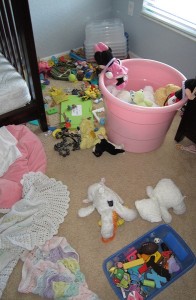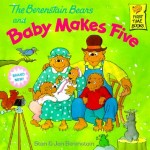We all know God sometimes speaks to people in their dreams, or at least he used to. Just remembering Mary and Joseph brings a handful of examples to mind, since their God-given dreams directed their every move. Does the Lord still do that today?
Last night I had a heart-thumper. In the dream I was babysitting for all my grandchildren, having trouble keeping them straight. Although I knew who was who, I couldn’t remember which mother-instructions went with which child. I had a heavy toddler on my hip and a baby on my shoulder and was trying to put together a bottle with one elbow and my chin. I couldn’t remember, though, if I was supposed to use formula powder or regular milk.
When I looked at the two children I was holding, they were both asleep. Had they already been fed? Or did they fall asleep hungry? And who went into which bed? And which child was the bottle for? And was it really nap time, or should I wake them up? On and on my confusion swirled as the other 4 grands ran circles around me, begging for popsicles and M&Ms.
All of us have experienced real-life confusion that could rival that dream. A number of small glitches, surprises, or coincidences happening in quick succession can combine to create a major crisis. And the worst part is realizing it’s not a dream and that we do have to cope with what seems un-cope-able at that moment.
I find it interesting that the few places in Scripture where the word “confusion” appears, it’s either in reference to an attack from the enemy (“throwing people into confusion”), or an example of God forcing confusion on a group as punishment, sometimes labeled “a curse.” In any and all cases confusion is synonymous with misery.
I often joke about being confused, but according to God it’s no laughing matter. Instead I should work at eliminating it from my life. Although I don’t invite confusion, it seems to dog me anyway. Is it possible that ongoing inefficiency and poor planning might be the real culprits? Is my hiding behind the “I’m-just-confused” line a cover-up for pure weakness?
Actually Scripture teaches that it’s worse than that. In 2 Corinthians 12 we see “disorder” listed as one of 8 sins! “…quarreling, jealousy, anger, hostility, slander, gossip, conceit, and disorder.” (V. 20) Who knew?
If God was using my dream to speak to me, his message was one of two things: (1) babysit grandchildren one at a time, or (2) get rid of the confusion in your life.
In either case, I was glad that this time I could eliminate the chaos simply by waking up.
“Chaos calls to chaos, to the tune of whitewater rapids… Then God promises to love me all day, sing songs all through the night! My life is God’s prayer.” (Psalm 42:7-8, MSG)




